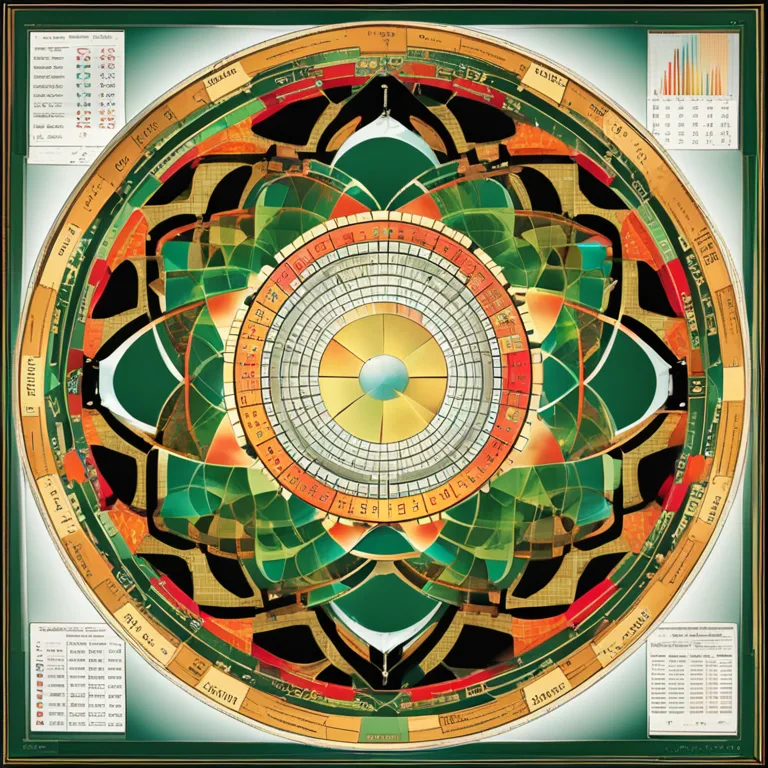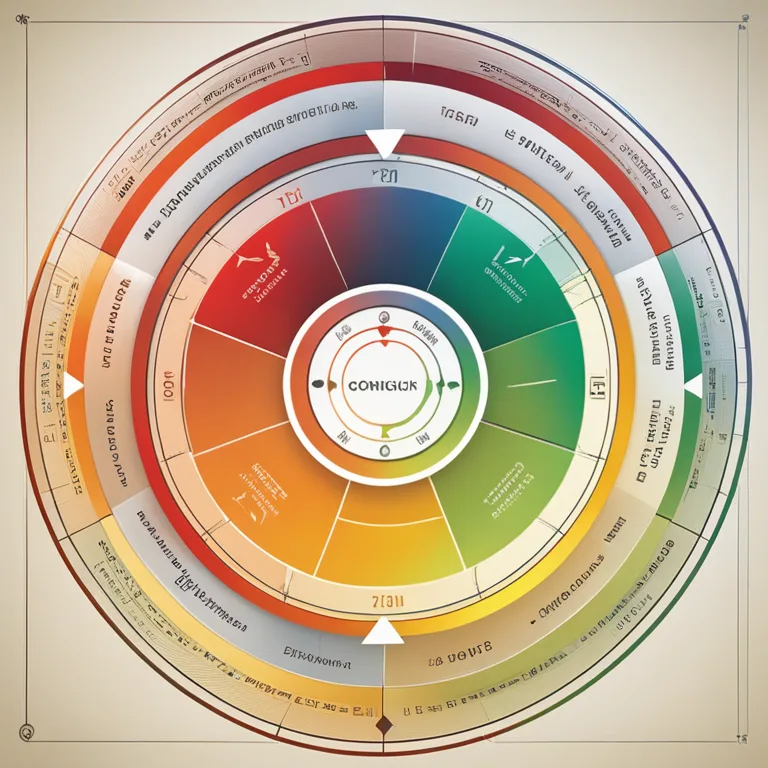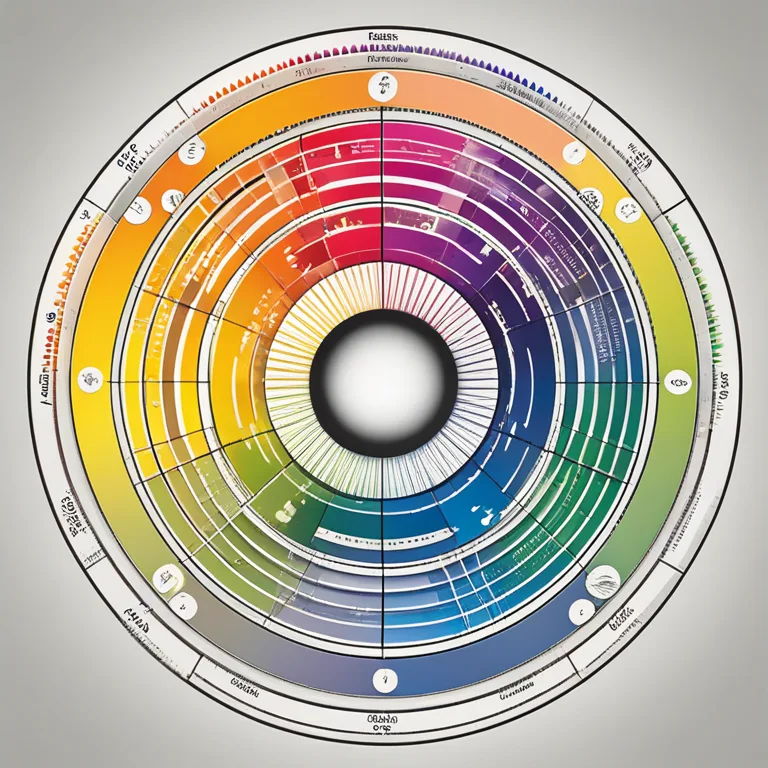
The Biorhythm Wheel: A Full Guide
Delve into the intricacies of the biorhythm wheel and learn how it reveals personal cycles that could steer your life decisions and physical, emotional, and intellectual well-being.
article by Adrian Wallace
Introduction to Biorhythms
Biorhythms are a complex system believed to affect human life by predicting fluctuations in physical, emotional, and intellectual states. The concept, stemming from a hypothesis that our daily lives are influenced by rhythmic cycles, has intrigued scholars and enthusiasts alike since the 19th century. With the advent of technology in 2024 and beyond, the study of biorhythms has become increasingly sophisticated, providing personalized insights that were once impossible.

The Essence of the Biorhythm Wheel
The biorhythm wheel is a visual representation of these cycles, akin to a personalized astrological chart but focusing on biometric patterns. It showcases the primary biorhythms: the 23-day physical, 28-day emotional, and 33-day intellectual cycles, along with secondary rhythms like the intuitive, spiritual, aesthetic, and awareness cycles. By plotting these rhythms, it purports to indicate optimal and critical days for certain activities or decisions.

Components of the Biorhythm Wheel
At its core, the biorhythm wheel consists of concentric circles, each corresponding to a different aspect of our wellbeing. The outermost circles often represent physical energy, the middle ones diagram emotional states, and the innermost detail intellectual capacities. When these cycles intersect or hit certain phases of their progression, it is said to have direct implications on a person's day-to-day life and decision-making abilities.

Interpreting the Biorhythm Wheel
Analysis of the biorhythm wheel can be both compelling and complex. High points in the physical cycle suggest periods of heightened endurance and strength, whereas low points may indicate a need for rest and recuperation. Similarly, peaks in the emotional cycle can correlate with increased empathy and social interaction; troughs might call for solitude and self-reflection. Intellectual cycle crests and valleys are thought to affect cognitive functions, such as problem-solving and learning.

Using Biorhythms in Daily Life
For the modern mystic or anyone curious about the potential impacts of natural rhythms, integrating biorhythm analysis into daily life could offer strategic advantages. Athletes might plan training schedules around their physical highs and lows, while business professionals could align challenging projects with phases of heightened intellectual activity. Even in relationships, understanding emotional cycles might foster better communication and empathy.
The Scientific Viewpoint
Though biorhythms captivate many, it's crucial to approach them with a balanced perspective. The scientific community remains skeptical about concrete predictive value due to a lack of empirical evidence. However, proponents advocate that, at the very least, tracking biorhythms encourages individuals to be more attuned to their body's natural rhythms and needs – an aspect that aligns well with the principles of mindfulness and self-care that are ever-prevalent in the wellness zeitgeist of 2024.
Future of Biorhythmic Studies
As we advance into the future, the intersection of technology and wellness could further refine the ways we understand and utilize biorhythms. Researchers and tech developers are continually exploring predictive analytics, artificial intelligence, and personalized health data to deliver increasingly accurate biorhythmic insights, possibly transforming this ancient theory into a tool with more measurable impact.
Published: 12/28/2023
Modified: 12/28/2023
More predictions
Come back here soon to learn more about yourself and your future


Biorhythm: The Accuracy of Compatibility
Delving into the precision of biorhythm compatibility in relationships. Discover how personal rhythms relate to compatibility.


Biorhythms: Tapping Into Your Luck Cycle
Discover how tracking your personal biorhythms can potentially enhance your fortune and improve your chances for success in various aspects of life.


The Emotional Wave of Biorhythms: Riding the Inner Flux
Discover the science behind emotional biorhythms and learn how tracking this natural cycle can help improve your daily life and relationships.